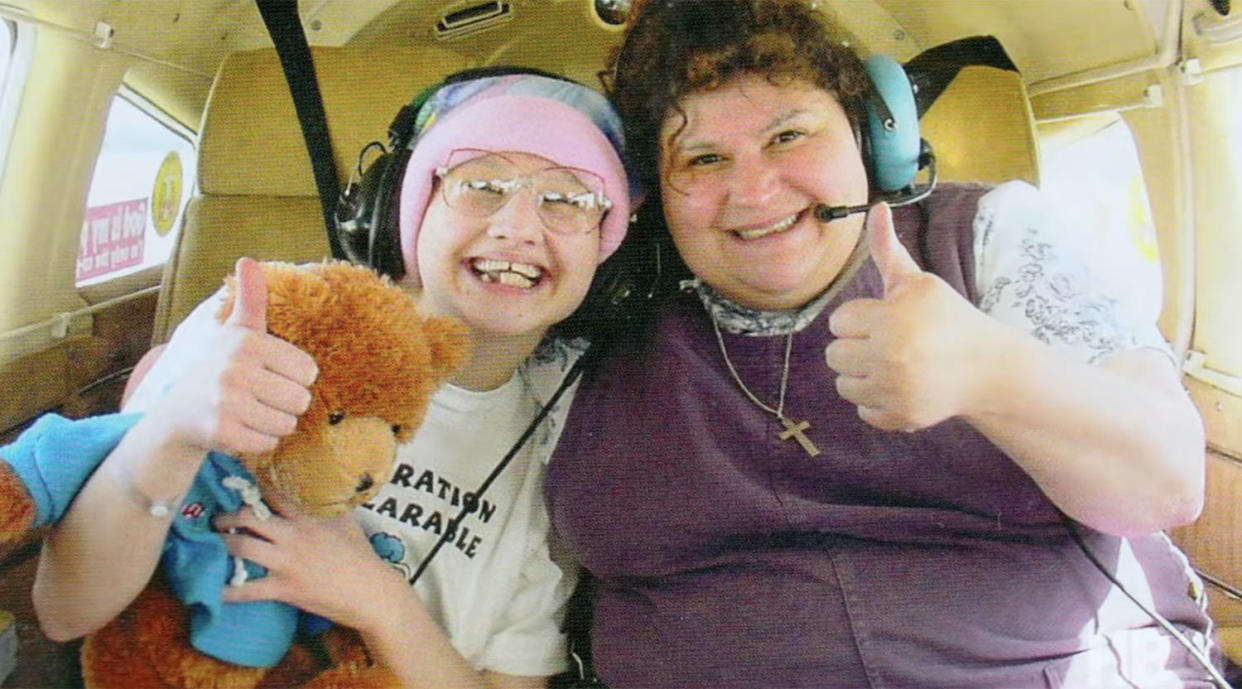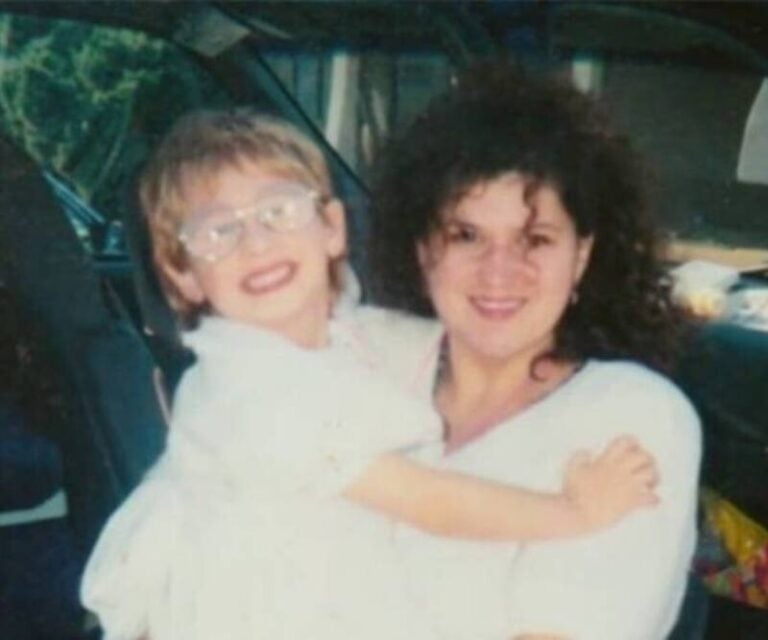Gypsy Rose Blanchard: What You Need To Know NOW!
Has a story ever captivated you so completely, a tale of abuse, deception, and ultimately, a desperate act of survival that redefined the meaning of family? Gypsy Rose Blanchard's life is precisely that story, a harrowing journey that began with a mother's manipulation and culminated in a crime that shocked the world, leaving an indelible mark on the true crime landscape.
The saga of Gypsy Rose Blanchard continues to grip the global audience, a testament to the enduring fascination with the complexities of human behavior and the dark corners of the parent-child relationship. At just 32 years old, Gypsy has lived a life that seems ripped from the pages of a gothic novel, a narrative dominated by the insidious control of her mother, Dee Dee Blanchard. Dee Dee, it was later revealed, suffered from Munchausen syndrome by proxy, a mental disorder where a caregiver fabricates or induces illness in a person under their care to gain attention. This condition warped Gypsy's reality from the outset, leading to years of unnecessary medical procedures, false diagnoses, and a fabricated existence.
| Category | Details |
|---|---|
| Full Name | Gypsy Rose Blanchard |
| Born | January 1, 1991 (though her age was falsified by her mother) |
| Age | 32 (as of 2024) |
| Residence | Springfield, Missouri (formerly) |
| Marital Status | Married |
| Known For | Victim of Munchausen syndrome by proxy and subsequent involvement in the murder of her mother. |
| Criminal History | Convicted of second-degree murder |
| Sentence | 10 years (paroled after 8.5 years) |
| Parole Date | December 28, 2023 |
| Reference | Wikipedia - Murder of Dee Dee Blanchard |
Gypsy's release from prison in December 2023, after serving seven years for conspiring to murder her mother, marked a turning point. The world, already familiar with her story through documentaries, television series, and countless online discussions, watched as she re-entered society. The public's reaction was a complex mix of empathy, judgment, and an insatiable desire to understand the motives behind the actions that led to Dee Dee Blanchard's death. The graphic crime scene photos, some of which have recently resurfaced online, fuel the ongoing fascination and are a stark reminder of the violence that concluded the years of manipulation. Police have had to address the public's reaction to the circulating images, a clear sign of the intense scrutiny surrounding the case.
The events of June 10, 2015, in Springfield, Missouri, remain etched in infamy. Gypsy, along with her then-boyfriend, Nicholas Godejohn, orchestrated the murder of Dee Dee Blanchard. This act, however horrific, was the culmination of years of psychological abuse. Gypsy had been subjected to a web of lies, fabricated illnesses, and unnecessary medical treatments orchestrated by her mother. Dee Dee controlled every aspect of Gypsy's life, isolating her from the outside world and fabricating a narrative of chronic illness to gain sympathy and financial assistance. The extent of this manipulation, from altering Gypsy's age on her birth certificate to keeping her confined, is now widely known and has been documented in various media outlets.
The crime scene photos themselves, described by a forensic expert as some of the most disturbing images ever seen, speak volumes. They offer a glimpse into the brutality of the act and the raw emotions involved. These images, though widely circulated, are a grim reminder of the tragic events. While some may view the release of these photos as a sensationalist act, others argue that they provide crucial context and understanding of the gravity of the situation. The house where Gypsy and Dee Dee lived, once a symbol of the fabricated life Dee Dee constructed, became a location of death and destruction.
The aftermath of the murder was equally disturbing. Moments after the murder, Nicholas Godejohn, driven by his own dark fantasies, carried out acts that further deepened the tragedy. Gypsys guilty plea in exchange for a 10-year sentence reflects the complex legal and emotional considerations in the case. The fact that she was paroled after serving eight and a half years reveals the severity of the circumstances she faced. The legal system recognized the years of abuse and manipulation Gypsy suffered, which influenced the sentencing and subsequent parole.
The story of Dee Dee and Gypsy continues to permeate popular culture. The case has inspired a plethora of content, ranging from Hulu's "The Act" to Erin Lee Carr's documentary "Mommy Dead and Dearest." These productions aim to portray the intricacies of the case and the lasting impact of Dee Dees actions. The continuous cycle of media attention, with each new documentary, news article, or social media post, ensures that the story stays relevant in the public consciousness. The constant presence of the story in the zeitgeist suggests that the public is interested, even if the subject matter is difficult to grapple with.
The decision to release crime scene photos remains a contentious issue. Those who oppose the sharing of these images argue that they are exploitative and cause unnecessary pain to the victims. Conversely, proponents argue that these photos are essential for a complete understanding of the events and the truth of the case. The debate highlights the challenges of balancing public interest and respect for the victims and their families.
The narrative of Gypsy Rose Blanchard is a stark illustration of the insidious nature of abuse and the desperate measures one might take to survive. The case prompts deeper reflection on the power dynamics within families, the complexities of mental illness, and the long-term consequences of trauma. It also raises questions about the justice system, specifically regarding sentencing, parole, and how the law considers the influence of severe psychological manipulation on a person's actions.
The case's enduring appeal lies in its ability to confront our assumptions about family, identity, and justice. As the world grapples with the tragic reality of Gypsy's past, the narrative continues to evolve. This story is a reminder of the human capacity for resilience in the face of unimaginable adversity. The release of crime scene images, the documentaries, and the continuous online discussions serve not only to document the events but also to understand the human condition.
The case also prompts conversations about the ethics of true crime. There is a thin line between informing the public and sensationalizing the events, and it is crucial to acknowledge the sensitive nature of the material. This narrative, with its complex issues of abuse, mental health, and the pursuit of justice, will remain a source of fascination and debate for years to come.
The life of Gypsy Rose Blanchard, shaped by a mother's deception and a tragic act, presents a complex study of human behavior, trauma, and resilience. The cases continuous exposure to the public eye guarantees that the story, with all its unsettling details, will remain a significant piece of true crime history.



